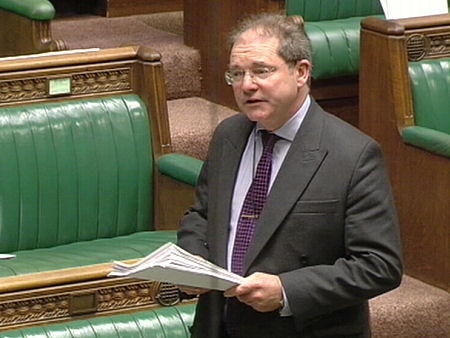21 November 2011
During a debate on the Intelligence and Security Committee Annual Report, Geoffrey Clifton-Brown raises his concerns that cyber attacks are likely to increase in the future and he says the intelligence agencies must make use of consultants who are likely to know the latest technologies rather than rely on those employed by the intelligence agencies for a long time.
Geoffrey Clifton-Brown (The Cotswolds) (Con): Does my right hon. and learned Friend agree that the situation with cyber attacks is likely to get worse, rather than better? There are clear examples around the world of such attacks significantly disabling military installations and operations, so the Government must continue to regard that as a high-level threat. In contrast to what he has just said, it is the consultants working on this on the front line around the world who are likely to know the latest technologies, rather than those who have been employed by the intelligence agencies for some time.
Sir Malcolm Rifkind: There may be some truth in what my hon. Friend says, and obviously these matters must be taken on board. Given his comments, I will make the general point that we should realise that cyber technology can be a threat and an opportunity for this country and others. One need only think of the use of what has become known as the Stuxnet malware, which temporarily prevented the Iranians continuing with uranium enrichment, which might lead to nuclear capability. If that happened—obviously, the information available is limited—it is a positive example of how such technology might prevent military conflict or a war ever taking place. Technology is not peculiar to one side of the debate or the other, but we must protect our secrets and our information. I strongly endorse my hon. Friend’s comments.
| Hansard
Geoffrey Clifton-Brown (The Cotswolds) (Con): Does my right hon. and learned Friend agree that the situation with cyber attacks is likely to get worse, rather than better? There are clear examples around the world of such attacks significantly disabling military installations and operations, so the Government must continue to regard that as a high-level threat. In contrast to what he has just said, it is the consultants working on this on the front line around the world who are likely to know the latest technologies, rather than those who have been employed by the intelligence agencies for some time.
Sir Malcolm Rifkind: There may be some truth in what my hon. Friend says, and obviously these matters must be taken on board. Given his comments, I will make the general point that we should realise that cyber technology can be a threat and an opportunity for this country and others. One need only think of the use of what has become known as the Stuxnet malware, which temporarily prevented the Iranians continuing with uranium enrichment, which might lead to nuclear capability. If that happened—obviously, the information available is limited—it is a positive example of how such technology might prevent military conflict or a war ever taking place. Technology is not peculiar to one side of the debate or the other, but we must protect our secrets and our information. I strongly endorse my hon. Friend’s comments.
| Hansard

